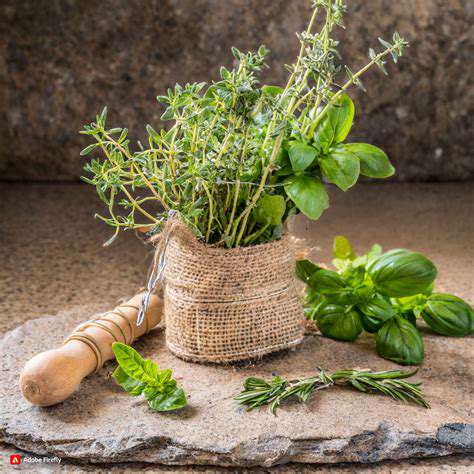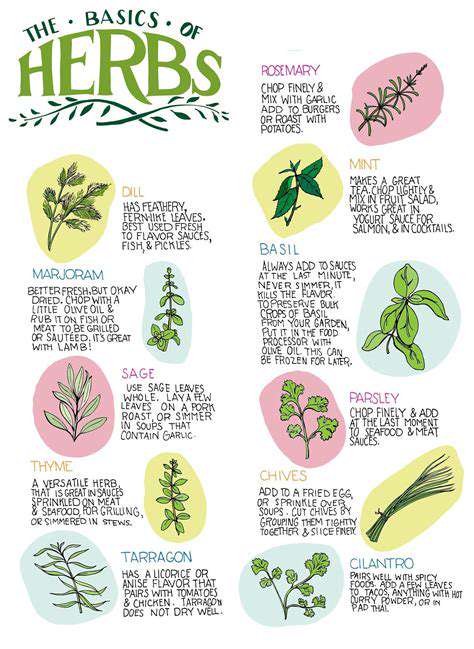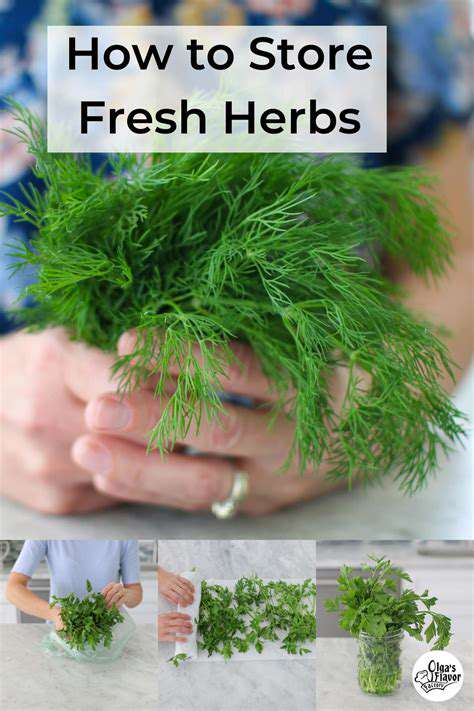Cooking with Herbs: Enhancing Flavor in Your Dishes
Jun 18, 2025 / btwgardenmachine/

The Aromatic Appeal of Fresh Herbs
There's something magical about the way fresh herbs awaken the senses when added to any dish. Unlike their dried counterparts, fresh herbs offer a lively burst of flavor that dances on the palate. Each variety tells its own story - the cool whisper of mint, the sunny disposition of lemon balm - creating layers of taste that canned herbs simply can't match. When cooking with fresh herbs, you're not just adding flavor; you're conducting an orchestra of scents and tastes that can be fine-tuned to perfection.
Culinary Applications Across Diverse Dishes
Fresh herbs aren't just pretty garnishes - they're the unsung heroes of global cuisines. Whether it's the Italian tradition of basil in pesto or the French art of bouquet garni, these fragrant leaves transform ordinary meals into extraordinary experiences. The way parsley brightens a creamy pasta sauce or how rosemary perfumes a slow-roasted leg of lamb demonstrates their indispensable role in cooking. Without these green wonders, many of our favorite dishes would lack their signature character and depth.
Health Benefits and Nutritional Value
Nature packed an impressive nutritional punch into these small leaves. Many herbs serve as concentrated sources of vitamins A, C, and K, along with minerals like iron and calcium. Their antioxidant properties help combat cellular damage, while certain compounds may support digestion and reduce inflammation. By simply adding a handful of fresh herbs to your meals, you're giving your body a boost of beneficial nutrients without extra calories. It's one of the easiest ways to make everyday eating more nutritious.
Simple Ways to Incorporate Fresh Herbs into Daily Meals
You don't need to be a professional chef to enjoy the benefits of fresh herbs. Try tucking a few basil leaves into your morning omelet or stirring chopped cilantro into rice just before serving. Even frozen pizzas become gourmet with a scattering of fresh oregano. The beauty of herbs lies in their ability to elevate even the simplest dishes with minimal effort. For drinks, a sprig of mint or lavender can turn ordinary water into a refreshing spa-like treat.
Preserving the Freshness of Your Herbs
To keep herbs at their peak, treat them like fresh flowers. Store tender herbs like basil and cilantro stems-down in a glass of water on the counter, while heartier varieties like rosemary and thyme prefer the crisper drawer wrapped in slightly damp paper towels. With proper care, your herbs will stay vibrant and ready to enhance your cooking for days. Freezing herbs in olive oil or making herb butters are excellent ways to preserve their flavors for future use.

From Simple Salads to Sophisticated Sauces: Herb Applications Across Dishes
Fresh Herbs in Salads: A Burst of Flavor
Imagine a simple bowl of greens transformed by the addition of fragrant herbs. The bright notes of dill can make cucumber slices sing, while tarragon adds a sophisticated anise-like complexity to butter lettuce. When creating salads, consider both flavor and texture - the feathery leaves of chervil provide visual appeal, while the sturdy stems of parsley offer a satisfying crunch.
Herbs in Savory Dishes: Enriching Flavor Profiles
The right herbs can turn basic ingredients into memorable meals. A chicken breast becomes extraordinary when stuffed with sage leaves under the skin before roasting. For beef dishes, the robust flavors of thyme and marjoram create perfect harmony. Timing matters when cooking with herbs - add delicate varieties like basil at the end, while hardy ones like rosemary benefit from longer cooking times.
Herbs in Vegetarian Dishes: Adding Depth and Interest
Plant-based cooking shines when herbs take center stage. Try sautéing mushrooms with thyme until golden, or folding chopped chives into mashed potatoes. The peppery bite of watercress can add excitement to a simple bean salad, while lemon verbena brings a citrusy surprise to vegetable stir-fries.
Herbs in Soups and Stews: Building Flavor Layers
As soups simmer, herbs work their magic. A classic French onion soup isn't complete without thyme, while Italian minestrone relies on basil and oregano. For Asian-inspired broths, lemongrass and kaffir lime leaves create aromatic foundations. Remember to remove woody herb stems before serving - their flavor has infused the broth, but their texture remains unpleasant.
Herbs in Roasted Vegetables: Enhancing Natural Sweetness
When roasting root vegetables, toss them with olive oil and rosemary sprigs before they hit the oven. The herbs' essential oils caramelize along with the vegetables' natural sugars, creating irresistible flavors. For summer vegetables like zucchini and eggplant, try a Mediterranean mix of oregano, mint, and parsley.
Herbs in Quick Cooking: Flavor Boosters
Even on busy nights, herbs can save the day. Keep a pot of chives on your windowsill for instant garnishes, or make an herbed compound butter to melt over grilled meats and vegetables. A quick pasta dish becomes restaurant-worthy with a handful of torn basil and parsley added just before serving.
Herbs in Sauces and Marinades: Creating Culinary Masterpieces
The secret to memorable sauces often lies in the herbs. A béarnaise sauce gets its character from tarragon, while chimichurri relies on parsley and oregano. When marinating, crush herbs slightly to release their oils - this helps them penetrate meats and vegetables more effectively. For the best results, let herb-infused marinades work their magic for several hours or overnight.
